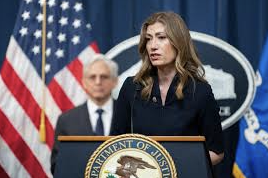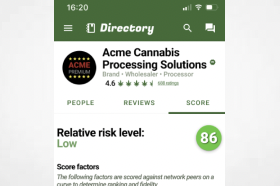When many states, including New York, legalized marijuana, they established residency requirements to ensure state residents receive the financial benefits of legalization in their own state and to curtail outside entities from entering and dominating a newly legalized state market from afar. This led out-of-state operators to cry foul, filing lawsuits predicated on the U.S. Constitution’s Commerce Clause, which charges Congress with regulating interstate commerce.
Another court recently ruled on residency requirements in the legal cannabis industry. The ruling further muddles the legal landscape around the interstate commerce of marijuana.
Judge Benjamin Settle, a judge with the United States District Court, Western District of Washington in Tacoma, upheld Washington state’s residency requirement for involvement in the state’s legal cannabis industry, finding it could not violate interstate commerce laws because there is no legal interstate commerce of cannabis – a drug illegal under federal law.
“The dormant Commerce Clause does not apply to federally illegal markets, including Washington’s cannabis market and, thus, it does not apply to Washington’s residency requirements,” Settle wrote.
Judge Settle’s ruling came in the context of a lawsuit filed by Todd Brinkmeyer, an Idaho resident seeking an ownership share in a chain of Washington cannabis stores. But Washington requires owners and investors in the cannabis industry to have lived in the state for at least six months.
Brinkmeyer sued the Washington Liquor and Cannabis Board in 2020, arguing, among other things, that Washington’s residency requirement violates the Commerce Clause of the U.S. Constitution, hindering interstate commerce.
Settle also dismissed other arguments from Brinkmeyer, including a claim against discrimination of out-of-state residents, saying there is no right to engage in illegal activity.
This is the latest ruling addressing the dual status of cannabis, which is illegal at the federal level, but legal for recreational use in many states.
Varying Decisions from Courts on Dormant Commerce Clause
The Dormant Commerce Clause stands for the legal proposition that, since Congress regulates interstate commerce, states are restricted from enacting legislation which discriminates against, or unduly burdens, interstate commerce. The focus of the Commerce Clause lawsuits is to argue that state laws and regulations discriminate or excessively burden interstate commerce when it comes to cannabis regulation.
Certain judges agree that the illegality of marijuana at the federal level bars it from regulation under the Dormant Commerce Clause. But others have not. In August, the First Circuit Court ruled a Maine residency requirement violated the dormant commerce clause because it “explicitly discriminates against residents of other states and Maine cannot show a legitimate local purpose for the requirement.” In the Maine case, a Delaware corporation wanted to buy a Maine corporation that operated three licensed marijuana dispensaries; however, it was blocked from doing so because Maine’s Medical Marijuana Act required all officers or directors of a dispensary to be residents of the state.
In New York, U.S. District Court Judge Gary Sharpe issued an injunction barring the issuance of licenses in five regions of the state, based on a lawsuit alleging violation of the Dormant Commerce Clause. In that case, Michigan-based Variscite NY One (“Variscite”) argued New York’s requirement that initial licenses go to those with New York connections and those harmed by New York cannabis laws, hindered interstate commerce. Variscite’s primary owner has a conviction on a marijuana-related offense but in the state of Michigan.
Judge Sharpe has since declined to lift the injunction.
In the wake of these varying court decisions, it is unclear when, where and how the cannabis industry will glean legal certainty on interstate commerce in the cannabis market. Perhaps a federal circuit court split might lead to a decision by the United States Supreme Court. Or, federal legalization of marijuana occurs.
For now, we must abide by individual court decisions. And interstate commerce doesn’t answer other questions, such as taxation, tax exemptions, or bankruptcy protection, that result from the product being legal on one level and illegal on another.
The regulatory landscape for the cannabis industry is still very much unsettled.
Source: https://www.jdsupra.com/legalnews/u-s-district-court-upholds-washington-2826834/

















